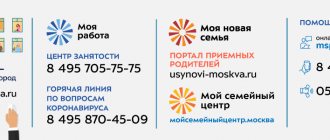MAGAZINE Preschooler.RF
Speech therapy support program for children with various speech disorders who do not attend compensatory groups “ABVGDeyka”Compiled by: Slovokhotova Larisa Gennadievna, teacher-speech therapist, highest qualification category
1. Explanatory note
The additional education program (hereinafter referred to as the Program) was developed with the aim of implementing a correctional educational process for children of MBDOU and children of the microdistrict adjacent to MBDOU who have various deficiencies in speech development.
The program is designed to provide
1. correctional assistance:
pupils aged 5–7 years with speech impairments as part of the provision of advisory and speech therapy assistance to children and parents on a paid basis.
2. advisory assistance
Parents (or persons replacing them) in choosing means and methods of teaching and raising children with speech disabilities
According to world statistics, the number of speech disorders is growing, and accordingly, the relevance of the problem of prevention and correction of speech disorders is becoming global. A significant percentage of speech disorders manifests itself in preschool age, which is a sensitive period for speech development. The number of preschool children with general speech underdevelopment of various etiologies is increasing. In recent years, there has been an increase in the frequency of stuttering in children, which is associated with the rapid introduction into everyday life of electronic media and video games, which bring down huge amounts of audiovisual data on the fragile nervous system of the child.
Speech disorders and limited verbal communication can negatively affect the formation of a child’s personality, cause mental layers, specific features of the emotional-volitional sphere, contribute to the development of negative character traits (shyness, indecisiveness, isolation, negativism, feelings of inferiority), which in turn negatively affects full comprehensive development of the child.
Timely detection of speech disorders contributes to their faster elimination and prevents the negative impact of speech disorders on the formation of personality and on the entire mental development of the child. It has been proven that the earlier correctional work with a child begins, the more effective its results are. The guiding idea in determining the strategy and technology for raising and teaching children with various speech disorders is the idea of prevention and early correction of delays in speech development. Correction of the communicative and speech sphere of children is a necessary condition for their full life activity, development of abilities, successful mastery of everyday, gaming, educational skills and abilities, which in turn contributes to social adaptation and subsequent integration into society.
Despite comprehensive work on the prevention of speech disorders, a significant decrease in the number of students in general development groups with speech defects has not been noted. This is due to a number of reasons: a large percentage of children with a complicated medical history, the passivity of parents, reluctance to follow the recommendations of teachers, and others.
The relevance of this problem determined the need to develop a speech therapy support program.
Regulatory framework of the program.
The main documents regulating the value-target and methodological foundations of this Program are:
- Federal Law of December 29, 2012 No. 273-FZ “On education in the Russian Federation”
- Decree of the Government of the Russian Federation dated July 5, 2001. No. 505 “On approval of the rules for the provision of paid educational services in preschool educational institutions”
- Constitution of the Russian Federation. Adopted by popular vote on December 12, 1993, as amended on December 30, 2008.
- Convention on the Rights of the Child. Adopted by resolution 44/25 of the United Nations General Assembly on November 20, 1989.
- Federal Law “On Basic Guarantees of the Rights of the Child in the Russian Federation” dated July 24, 1998 No. 124-FZ.
- Concept of a modern model of education in the Altai Territory until 2020 (project), Barnaul, 2009.
- Sanitary and epidemiological requirements for the design, content and organization of work in preschool organizations. Sanitary and epidemiological rules and regulations SanPiN 2.4. 1. 2660 – 10. Approved by the Decree of the Chief State Sanitary Doctor of the Russian Federation dated July 22, 2010 No. 91.
- Changes No. 1 to SanPiN 2.4. 1. 2660-10 “Sanitary and epidemiological requirements for the design, content and organization of work in preschool organizations . Approved by Decree of the Chief State Sanitary Doctor of the Russian Federation dated December 20, 2010 No. 164. Sanitary and epidemiological rules and standards SanPiN 2.4. 1. 2791-10.
- On hygienic requirements for the maximum load on preschool children in organized forms of education. Instructional and methodological letter dated March 14, 2000 No. 65/23-16.
- On the concept of integrated education for persons with disabilities (special educational needs). Letter of the Ministry of Education of the Russian Federation dated April 16, 2001 No. 29/1524-6.
- Letter of the Ministry of Education and Science of the Russian Federation dated April 18, 2008 No. AF-150/06.
- On the organization of short-term groups for children with developmental disabilities in preschool educational institutions. Letter from the Ministry of Education of the Russian Federation dated June 29, 1999
- Charter of MBDOU.
- Agreement between MBDOU and parents of pupils.
2. Continuing education program.
2. 1.Purpose of the program
Based on the principles of humanistic pedagogy and guided by this program, the goals of correctional work are determined:
- comprehensive and harmonious development of the child’s personality, taking into account his psychophysical and social development, individual capabilities and inclinations, full-fledged experience of the period of preschool childhood;
- creation of a unified correctional and developmental space for families and municipal pre-school educational institutions, providing correctional speech therapy assistance
- for pupils with speech disorders
- to all participants in the process of accompanying a child with disabilities (parents or legal representatives)
2. 2.Tasks
correctional work:
One of the main objectives of the work program is for children to master independent, coherent, grammatically correct speech and communication skills, the phonetic system of the Russian language, and elements of literacy, which forms psychological readiness for learning at school and ensures continuity with the next stage of the education system. For this it is planned:
- Qualitative differential diagnosis of preschool children with the aim of timely identification of children with speech disorders of varying severity;
- Clarification (if necessary) of the speech diagnosis of pupils;
- Providing qualified speech therapy assistance to pupils of the MBDOU of the adjacent microdistrict who do not have speech therapist teachers;
- Providing qualified speech therapy assistance to pupils of general developmental groups attending MBDOU No. 41;
- Prevention of speech disorders in students attending general developmental groups;
advisory work:
- Forming parents’ information readiness for speech therapy work, providing assistance in organizing a full-fledged subject-development and speech environment;
- Providing advisory (group/individual, planned and upon request) psychological and pedagogical assistance (with demonstration of practical methods of work) to participants in the process of accompanying pupils of general development groups (parents or legal representatives)
- Promotion of speech therapy knowledge among participants in the process of supporting students with speech disorders.
- Establishing partnerships with the family of each student, creating an atmosphere of mutual support and community of interests; assistance to the family in choosing a parenting strategy and methods of corrective education for a child with speech disorders.
- Introduction of modern information technologies into the process of correctional work.
2. 3.Principles of correctional pedagogical work.
The process of training students under the Program is based on the following principles:
- the principle of the recommendatory nature of teacher advice;
- the principle of priority of the interests of the pupil ( “on the side of the child” );
- principle of continuous learning;
- the principle of an integrated approach to learning;
The selection of forms, methods and techniques for mastering the Program is carried out based on the didactic principles of general and special pedagogy:
- principles of science, consistency, complexity
- principle of developmental education
- principle of necessity and sufficiency
- principle of unity of education and training
- consideration of speech disorders in connection with other aspects of the child’s mental development
- activity approach
- ontogenetic principle; the principle of taking into account etiology and mechanisms (etiopathogenetic principle)
- the principle of taking into account the symptoms of the disorder and the structure of the speech defect
- principles of individual and differentiated approach
- the principle of supporting the child’s independent activity (individualization)
- the principle of variability in the organization of training and education processes
- the principle of comprehensive thematic planning to ensure the integration of educational areas in accordance with the age capabilities and characteristics of students, age-appropriate forms of work with children
- workaround principle
- principle of respect for individual rights
- the principle of a competency-based approach (the formation of the necessary knowledge and skills, a personal and value-based attitude to activities and the products of its implementation, the development of independence, creativity, the ability to solve new problems in new situations)
- priority of active learning methods; creating a rich developmental environment that provides the cognitive and play needs of a modern preschooler
— the principle of partnership with the family.
2. 4. Directions of correctional work according to the program.
The program of correctional and developmental work is carried out in the following areas, reflecting its main content:
- diagnostic: ensures timely identification of children with disabilities, carrying out a comprehensive examination of them and preparing recommendations for the provision of correctional assistance in the conditions of MBDOU;
- correctional and developmental: provides timely specialized assistance in mastering the content of education and correction of deficiencies in the physical and/or mental development of children with disabilities in the conditions of a municipal preschool educational institution;
- advisory: ensures continuity of special support for children with disabilities and their families on the implementation of differentiated psychological and pedagogical conditions for training, education, correction, development and socialization of pupils;
- informational and educational: aimed at explanatory activities on issues related to the characteristics of the educational process for this category of children, with all participants in the educational process - pupils (both with and without developmental disabilities), their parents (legal representatives), teaching staff.
2. 5. Contents of the program.
Diagnostic work
includes:
- timely identification of children with impaired speech development
- diagnosis of developmental disorders and analysis of the causes of adaptation difficulties
- comprehensive collection of information about the child based on diagnostic information from specialists in various fields
- determining the level of actual and zone of proximal development of a pupil with speech disorders, identifying his reserve capabilities
- studying the development of the emotional-volitional sphere and personal characteristics of pupils
- study of the social situation of development and conditions of family education of children
- studying the adaptive capabilities and level of socialization of the child
- systemic comprehensive monitoring of the level and dynamics of child development
- analysis of the success of correctional and developmental work.
Corrective and developmental work
includes:
- selection of correctional methods and teaching methods that are optimal for the child’s development in accordance with his special needs
- organizing and conducting subgroup and group correctional and developmental classes necessary to overcome speech development disorders and learning difficulties
- correction and development of higher mental functions
- development of the emotional-volitional sphere and personal spheres of the child and psychocorrection of his behavior.
The main form of work in accordance with the work program is play activity.
All correctional and developmental classes in accordance with the work program are playful in nature, filled with a variety of games and developmental play exercises.
Advisory work
includes:
- development of substantiated recommendations on the main areas of work with children with speech disorders
- consultation by a specialist with parents (or their representatives) on the choice of individually oriented methods and techniques for working with children
- advisory assistance to the family on the choice of upbringing strategies and methods of corrective education for a child with speech impairment.
Information and educational work
provides:
- various forms of educational activities (lectures, individual conversations, counseling, questioning, individual workshops, information stands, printed materials) aimed at explaining to participants in the educational process - children with speech disorders, their parents (legal representatives), teaching staff - issues related to features of the educational process.
The basis for planning, developing and implementing the Corrective Work Program (frontally, in subgroups and microgroups) is an integrated approach to the child’s problem, taking into account the current level and “zone of proximal development” , individual, age, psychological characteristics and structure of the pupils’ defect.
The solution to correctional and educational problems is carried out in various forms of joint activities of adults and children (consultations, classes) as well as in the independent activities of pupils at home.
Group classes for children are primarily focused on the formation of lexical and grammatical means of the language and the development of coherent speech, the formation of pronunciation.
Subgroup classes are aimed at correcting individual speech deficiencies and other shortcomings in the psychophysical development of students, which create certain difficulties in mastering the program.
The work program is designed for one academic year, which lasts from September 1 to June 1.
Advisory and correctional work is carried out in the following time period: from September 15 to May 15 of the current year.
Children with speech disorders, as a rule, have concomitant diagnoses, functional deviations in health, disorders of the emotional and volitional sphere, etc. In order to preserve and strengthen physical/mental health and prevent fatigue, a gentle regime has been introduced for pupils, which involves reducing the duration of correctional works:
for children six years of age no more than 20 minutes,
for children seven years of age - no more than 25 minutes.
During the school year, there is a gradual transition to working in small subgroups (microgroups), which allows optimizing time costs and moving on to developing skills in joint productive and speech activities of children.
The program is being implemented for pupils who do not attend speech therapy classes in preschool institutions in our microdistrict, as well as for children attending general development groups in our MBDOU.
3. Conditions for the implementation of the Corrective Work Program
3. 1. Psychological and pedagogical support:
- providing differentiated conditions (optimal training load, variable forms of receiving specialized care) in accordance with diagnostic results;
- providing psychological and pedagogical conditions (correctional focus of the educational process; taking into account the individual characteristics of the child; maintaining a comfortable psycho-emotional regime; using modern pedagogical technologies, including information and computer technologies to optimize the correctional and developmental process, increasing its effectiveness and accessibility);
- provision of specialized conditions (solving a set of special tasks at all stages of correctional education, focused on the special educational needs of students with speech underdevelopment; the use of special methods, techniques, teaching aids, differentiated and individualized education, taking into account the specifics of the child’s developmental disorders; complex influence on the student, carried out in individual and group correctional classes);
- provision of health-preserving conditions (health and protective regime, strengthening of physical and mental health, prevention of physical, mental and psychological overload of students, compliance with sanitary and hygienic rules and norms).
3. 2. Methodological support.
List of programs and technologies used in the process of speech therapy support for pupils
Modern speech therapy practice has in its arsenal technologies aimed at timely diagnosis and the maximum possible correction of speech disorders.
These include those well known to specialists:
- Technology of speech therapy examination.
- Sound pronunciation correction technology.
- Technology for the formation of speech breathing in various disorders of the pronunciation aspect of speech.
- Voice correction technology for various pronunciation disorders of speech.
- Technology for the development of intonation aspects of speech.
- Technology for correcting the tempo-rhythmic aspect of speech.
- Technology for the development of the lexical and grammatical aspects of speech.
- Speech therapy massage technology.
Being on the border of contact between pedagogy, psychology and medicine, speech therapy uses in its practice, adapting to its needs the most effective, non-traditional methods and techniques of related sciences, which help optimize the work of a speech therapist teacher.
In recent years, there has been a tendency to increase the number of children with speech disorders. Speechless children of 3-4 years of age are admitted to kindergarten with an almost complete absence of sounds, impaired phonation, and serious violations of the syllabic structure of words. When working with this category of children, it is not enough to use traditional methods of correctional work. In this regard, new approaches, technologies and techniques are needed to eliminate speech deficiencies. Modern technologies for speech therapy examination, correction of speech disorders and monitoring of speech development make it possible to improve the quality of correctional work.
Thus, in modern speech therapy practice, if conditions exist, technologies that are not traditional for speech therapy are actively used:
- various types of speech therapy massage,
- Sujok therapy,
- aromatherapy,
- music therapy,
- fairytale therapy,
- sand therapy,
- various models and symbols,
- multimedia correction and development tools are actively being introduced into the correctional and developmental process,
- TRIZ - technologies
| Next > |





